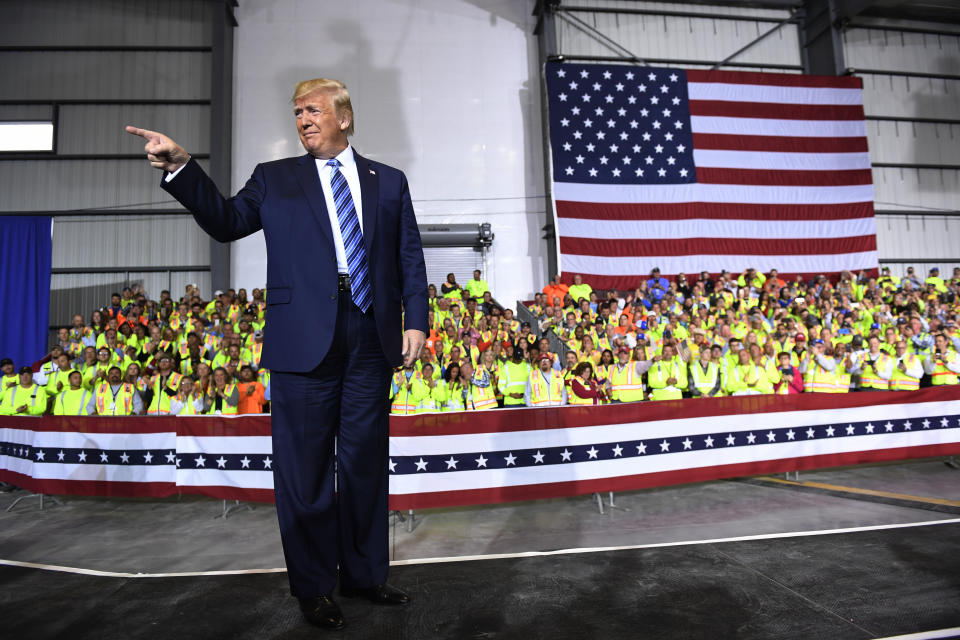Trump delays tariffs to appease Christmas shoppers
After President Trump announced he’s delaying tariffs on consumer goods imported from China, including shoes and clothes, markets soared.
Apple (AAPL), viewed by many on Wall Street as the poster child for the U.S.-China trade war, saw its shares rise more than 4% after the announcement. “With ~40% of iPhones sold globally coming out of the US, this would have resulted in a 4% hit to EPS or roughly $0.50 that is now temporarily off the table for the next few quarters and will be a big sigh of relief for the Street,” Wedbush analyst Dan Ives said.
The imports scheduled to get hit with 10% tariffs on Sept. 1 – which will now be delayed until Dec. 15 – include cellphones, laptops, toys, certain types of shoes, and clothes. And no doubt Trump knows higher prices on these items would’ve hurt consumers hard, especially during the holiday shopping season.
“That delay is more about jolly ol’ Saint Nick than it is about the trade talks themselves,” Isaac Boltansky, Compass Point’s director of policy research, said on Yahoo Finance’s “On the Move.” “This is about shielding the American consumer heading into the holiday season,” he said, adding, “most of the actual inventory will be in the States and on the shelves before that Dec. 15 deadline, so really they’re safe for the holiday season.”

Indeed, Trump told reporters Tuesday: “We’re doing this for the Christmas season. Just in case some of the tariffs would have an impact on U.S. customers.”
Trump had threatened to implement 10% tariffs on $300 billion in Chinese goods on Sept. 1 in retaliation for China reneging on its vow to buy big quantities of U.S. agricultural products.
The imports that still face the Sept. 1 tariffs include coats, dresses, certain types of footwear, cigarette lighters, sunglasses, pencils, and crayons.
By delaying tariffs on so many consumer goods to Dec. 15, Trump has shown a reluctance to materially hurt consumers’ pockets more than he already has. The trade group Tariffs Hurt the Heartland estimates that tariffs since 2018 have resulted in $6 billion in additional costs for U.S. businesses and consumers.
“The focus on the consumer portion of this $300 billion tranche is vital for the White House and …they would much rather travel through other pressure avenues to influence the negotiations than that particular tranche,” said Boltansky. “That being said, we’ve got to keep in mind that we’re still in the early innings of this whole thing.”
More from Sibile:
Here’s the truth about Trump’s Pledge to America’s Workers
Democratic debates: Fight over free college for rich kids
Trump adds $4.1 trillion to national debt. Here’s where the money went
Skills gap will cost US economy $1.2 trillion over the next decade
Washington playing ‘high stakes poker game’ with Big Tech: Analyst
Read the latest financial and business news from Yahoo Finance
Follow Yahoo Finance on Twitter, Facebook, Instagram, Flipboard, LinkedIn, YouTube, and reddit.


